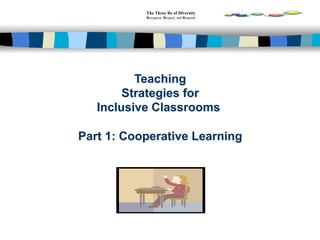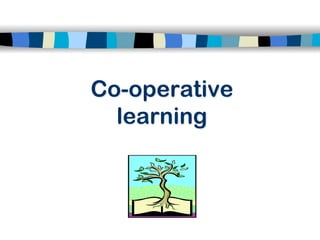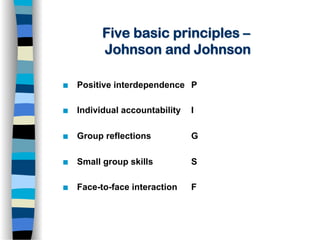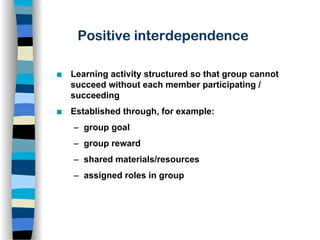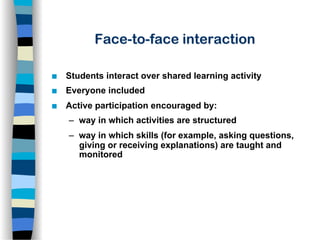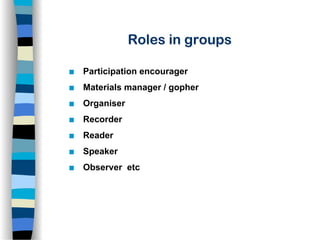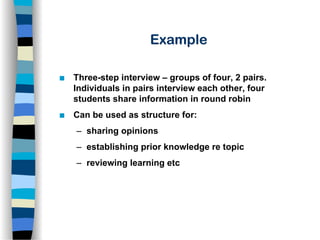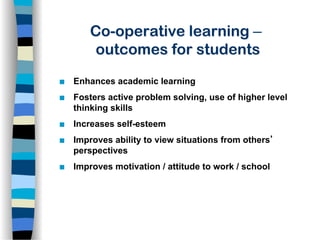This document discusses cooperative learning strategies for inclusive classrooms. It defines cooperative learning as students with differing skills learning together and being responsible for individual and group achievement. The benefits of cooperative learning include accommodating different needs, directly fostering communication and social skills, and increasing overall student involvement. Key principles of cooperative learning include positive interdependence, individual accountability, group reflection, teaching small group skills, and promoting face-to-face interaction. Examples of cooperative learning activities and their benefits are also provided.
